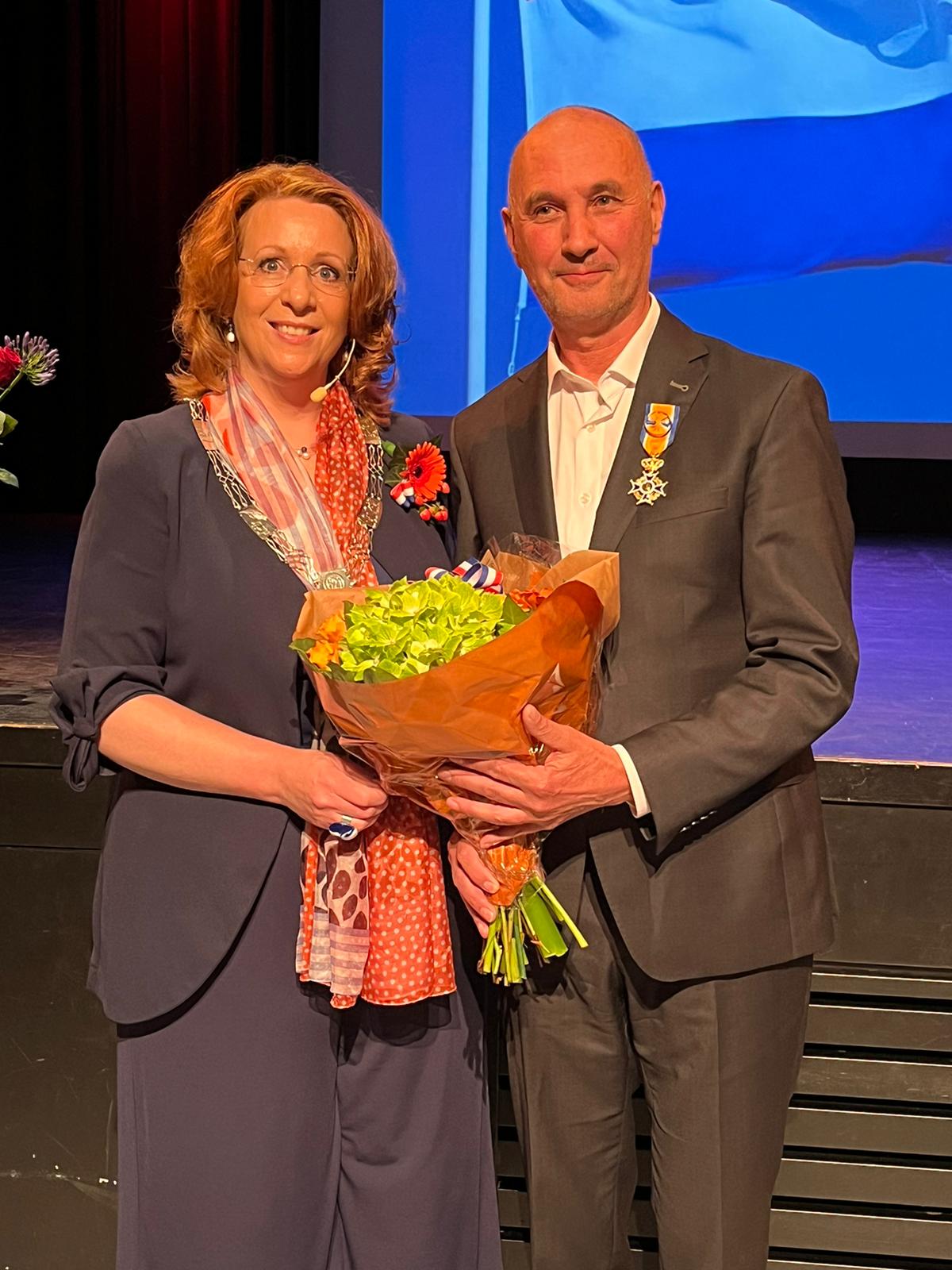Royal honour for professor DirkJan Veeger
Professor in the Department of Biomechanical Engineering, DirkJan Veeger, was appointed Officer in the Order of Orange-Nassau on 26 April. He receives this distinction for his exceptional achievements and contributions within science and society.
The scientific research of DirkJan Veeger, professor of Musculoskeletal Mechanics, focuses on the biomechanics of the shoulder and arm. A research field where movement and engineering sciences converge. This is why Veeger had long held appointments at both TU Delft and the Faculty of Movement Sciences at VU Amsterdam. It is no surprise, therefore, that colleagues describe Veeger as someone that build bridges and brings people together from different disciplines.
Leading research
Veeger has spent much of his academic career at the interface of (sports) biomechanics and rehabilitation, with a focus on activities requiring hand and shoulder movements. His research on manual wheelchair propulsion, which is strongly related to arm movements, is pioneering. Among other things, he has used his knowledge to help Dutch paralympic athletes perform at their best. He has also helped set up a biomechanical gait lab at Anton de Kom University in Paramaribo, Suriname.
His work has led to many publications and the 'Delft Shoulder Model'. Veeger is one of the initiators and an active member of the International Shoulder Group (ISG), the leading international expertise group on arm biomechanics for more than 25 years. Due to Veeger's continuous commitment to ISG, the ISG is still an active and leading focus group and the Netherlands is at the forefront in terms of shoulder biomechanics research.
Veeger also has a big heart for education. He has always involved students in research by creating thesis projects. As education director in movement sciences (VU), he made a big improvement in terms of the quality of the education programme.
Veeger is characterised as calm and articulate. For many of the current staff members inside and outside the department and the many students he supervises, Veeger is seen as a mentor. In doing so, he has contributed to the formation of a new generation of professionals and scientists.
Career path
After obtaining his masters in Human Movement Sciences in 1984, Veeger continued his studies in London, where he obtained his MSc in Ergonomics from University College London. Since 1986, Veeger has been affiliated to the Department of Human Movement Sciences, where he received his PhD in 1992 on Biomechanics of Wheelchair Propulsion and, since 2014 up till 2020, held a position as Professor in Biomechanics and Sport Engineering. Veeger combined this with a position as Professor of Musculoskeletal Mechanics at the Department of Biomedical Engineering of Delft University of Technology, where he has been responsible since 2000 for research in the area of shoulder biomechanics. In march 2020 he switched to Delft, where he acted as chair of the Department of Biomedical Engineering from 2015 till 2022.
